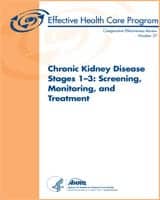Augurex, Vancouver, BC, Canada, and Quidel, San Diego, have recently announced their launch of the JointStat 14-3-3? research use only enzyme-linked immunosorbent assay.
The companies’ joint distribution arrangement will get testing for the 14-3-3? protein into the hands of more investigators worldwide—including key opinion leaders and pharmaceutical companies—to advance and grow the body of data for the novel joint damage biomarker in autoimmune diseases.
There is increasing international momentum to investigate the role of 14-3-3? in various autoimmune diseases with joint involvement. In addition to rheumatoid arthritis, where the largest body of 14-3-3? data exists, conditions such as inflammatory bowel disease, psoriasis, and systemic lupus erythematosus are also associated with a high incidence of arthritis, secondary to their primary autoimmune disease.
The protein 14-3-3? informs mechanistic joint damage processes common to such conditions, allowing novel biochemical pathways and therapeutic options to be investigated from the basic science level, right through to disease prevention and controlled clinical remission.
For Augurex, the synergy with Quidel builds on the companies’ strong and growing bone and complement pathway marker business, which has an excellent distribution fit for client groups interested in investigating 14-3-3?.
“Most importantly, we are committed to working with companies who not only have commercial strength but also share similar guiding principles to ours, including integrity, patient focus, and optimism,” says Norma Biln, CEO of Augurex. “Ultimately this benefits all stakeholders, especially patients who are waiting for solutions.”
For further information, visit Augurex and Quidel.
Featured image: The JointStat 14-3-3? research use only ELISA by Augurex.





